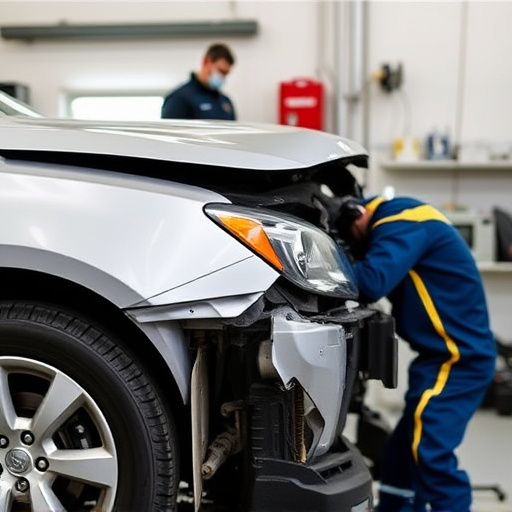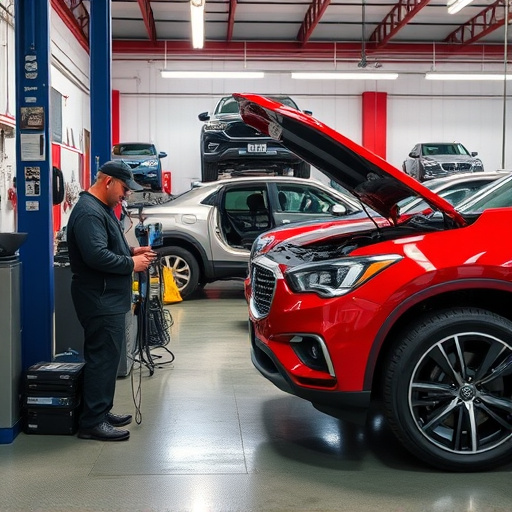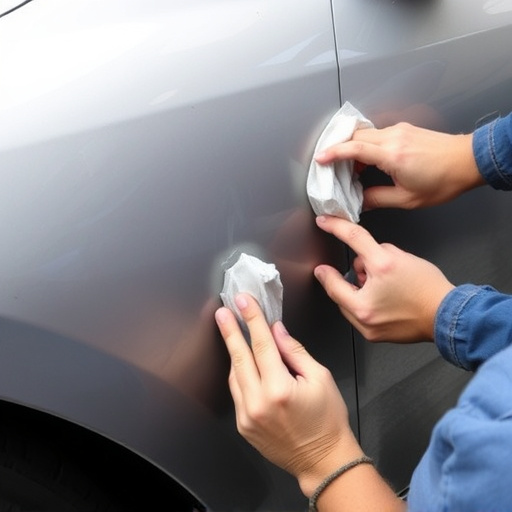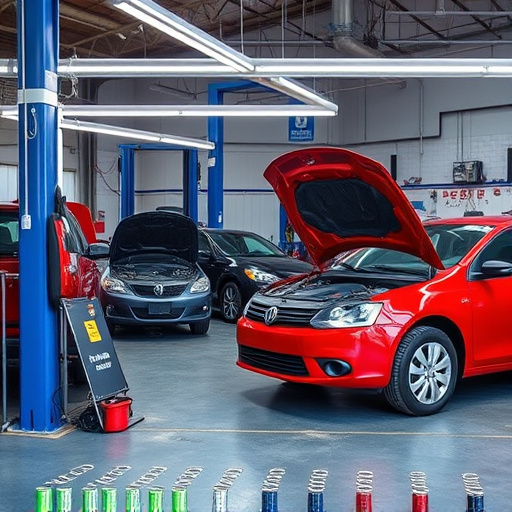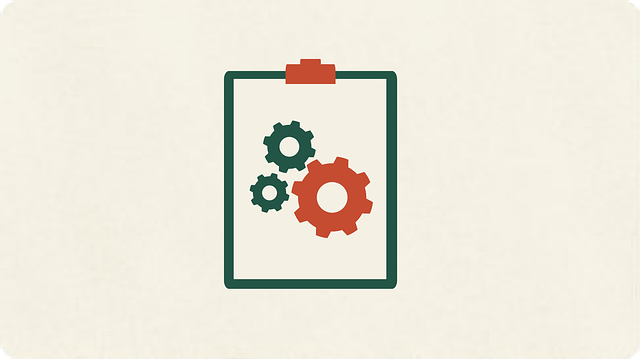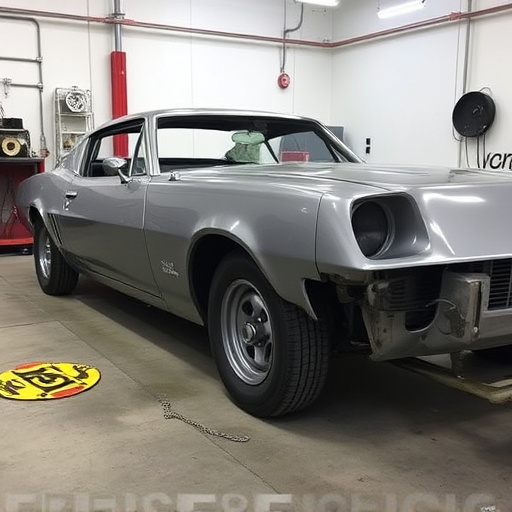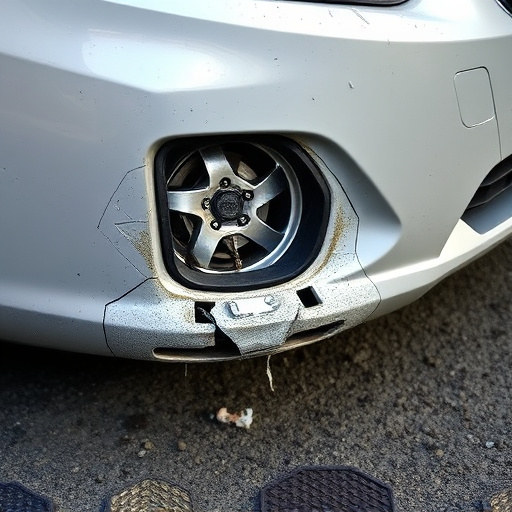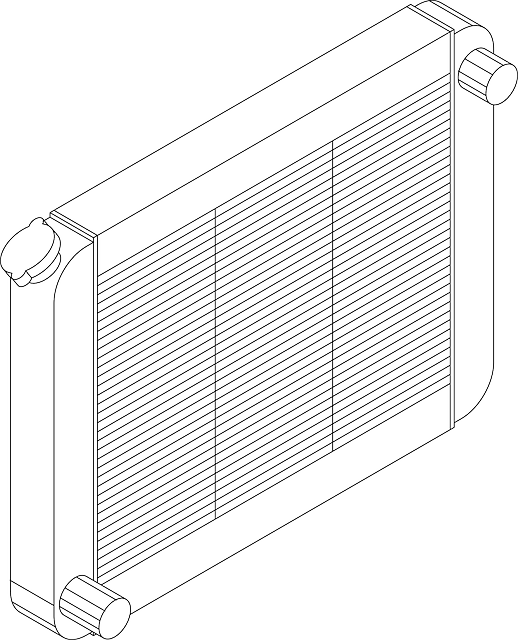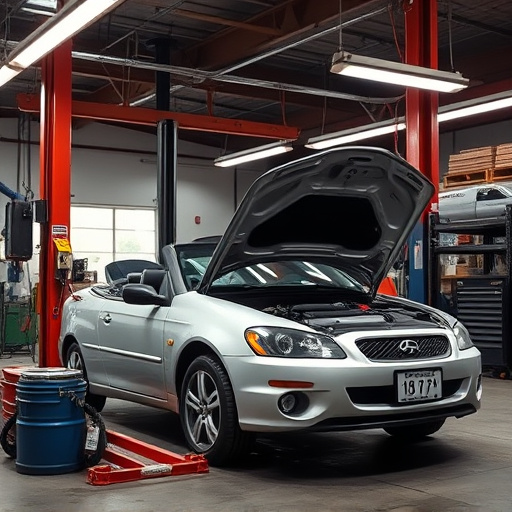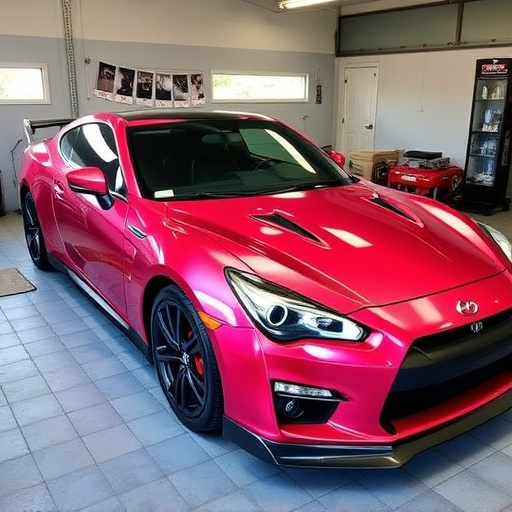In vehicle repair, effective communication through active listening builds trust and customer satisfaction. Trained staff should use clear language, non-verbal cues, and personalized solutions to address client concerns, fostering open dialogue and enhancing problem-solving for a positive automotive experience.
Training staff for excellence in vehicle repair communication skills is paramount in today’s competitive automotive industry. Effective communication transcends technical proficiency, fostering stronger customer relationships and boosting business reputation. This article delves into the essential aspects of vehicle repair communication, focusing on understanding key essentials, mastering effective listening techniques, and building robust customer connections through chat and conversation.
- Understanding Vehicle Repair Communication Essentials
- Effective Listening Techniques for Technicians
- Building Strong Customer Relationships Through Chat and Conversation
Understanding Vehicle Repair Communication Essentials

In the fast-paced world of vehicle repair, effective communication is the cornerstone of exceptional service. Understanding the essentials of vehicle repair communication means recognizing that every interaction with a customer is an opportunity to build trust and ensure satisfaction. Whether it’s explaining complex technical issues in simple terms or efficiently coordinating with other departments within a collision center, clear and concise communication fosters a seamless experience for clients receiving car repair services.
The art of effective vehicle repair communication extends beyond mere words. Non-verbal cues, active listening, and adaptability to individual customer needs are vital skills. Staff should be trained to ask probing questions, offer solutions tailored to the specific needs of each vehicle dent repair scenario, and provide regular updates throughout the repair process. This open dialogue not only enhances customer confidence but also contributes to a positive reputation for the entire car repair services department.
Effective Listening Techniques for Technicians
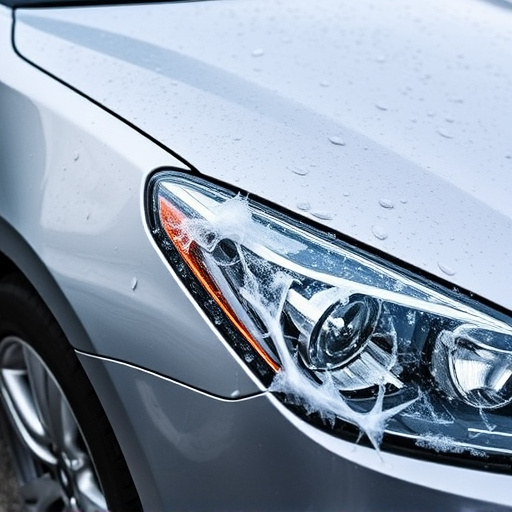
In the realm of vehicle repair communication skills, effective listening is a powerful tool for technicians. It goes beyond merely hearing words; it involves understanding the customer’s concerns, needs, and expectations. Active listening techniques such as paraphrasing, asking open-ended questions, and maintaining eye contact foster a sense of trust and respect between the technician and the client. For instance, when a customer describes a peculiar noise their Mercedes-Benz is making, a skilled technician would not only nod but also rephrase the issue back to ensure they grasp it accurately. This simple act demonstrates empathy and commitment to providing top-notch automotive repair services.
Moreover, effective listening helps in avoiding misunderstandings and miscommunications that could arise from technical jargon or vague descriptions. Technicians should be adept at breaking down complex issues into simpler terms, ensuring the customer feels involved and informed about their vehicle’s fender repair or any other service rendered. This approach not only enhances the overall automotive repair experience but also encourages open dialogue, allowing for better problem-solving and customer satisfaction.
Building Strong Customer Relationships Through Chat and Conversation

In the realm of vehicle repair, effective communication is the cornerstone of building strong customer relationships. When customers bring their cars in for service, whether it’s for luxury vehicle repair or automotive maintenance, they’re not just seeking technical expertise; they also expect a friendly and understanding conversation. A simple chat can help alleviate their concerns, explain complex procedures, and foster trust. Technicians should be trained to actively listen to clients’ needs, fears, and questions, ensuring every interaction is personalized and reassuring.
Conversations don’t stop at the repair bay. With the rise of online chat platforms and quick response systems, customers now expect immediate attention to their inquiries. Responding promptly and professionally through these channels can set a positive tone for the entire service experience, especially when dealing with hail damage repair or other intricate tasks. By mastering vehicle repair communication skills, staff can create a supportive atmosphere, ensuring clients feel heard and valued throughout every step of their automotive journey.
Training staff in effective vehicle repair communication skills is an investment that pays dividends. By mastering essential techniques like active listening, empathetic conversation, and clear, concise language, technicians can enhance customer relationships, increase satisfaction, and foster a positive reputation for the garage. Integrating these strategies into daily practices ensures a more efficient, productive, and successful business in the competitive automotive industry.
